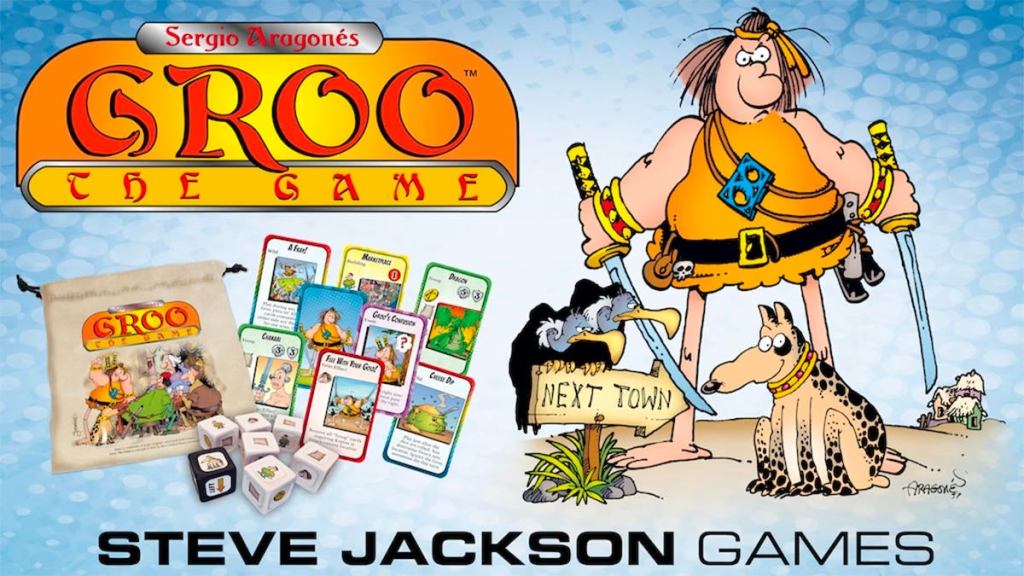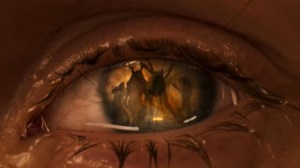A classic board game featuring Sergio Aragonés’ seminal comic character Groo is returning soon, with a successful Kickstarter underway. This week, Steve Jackson Games launched a Kickstarter to reprint Groo: The Game, a board game originally published in 1997 by Archangel Studios and designed by Ken Whitman and Aragonés himself. Groo the Wanderer, of course, was one of the first commercially successful creator-owned comics and is a loving satire of the fantasy genre, with Groo heavily inspired by Robert E. Howard’s Conan the Barbarian. While Groo: The Game was a hit when it was first released, it fell out of print with no clear path to returning to shelves. However, Steve Jackson and Steve Jackson Games worked for years to get the rights to the game, with Groo finally returning to tabletops after a nearly 20 year absence. The Kickstarter has already met its initial funding goal, with over $26,000 raised in just over a day.
Videos by ComicBook.com
ComicBook.com had the opportunity to speak with Jackson about Groo: The Game and the ever-evolving tabletop industry. This interview has been edited for conciseness and clarity. A full version of the interview can be found on our Character Sheet YouTube channel.

ComicBook.com: How did you and your company decided that now was the time for a Groo remake?
Steve Jackson: Well, the truth is, five years ago was time for a Groo remake. It was a slow process lining up the rights and getting everything together. But fortunately, Sergio is still alive and well and happy because I really didn’t want this to be a memorial game. It’s a celebration of how awesome Groo is.
Groo is one of the earlier satires of the sword-and-board style, Conan the Barbarian fantasy tropes. For those who haven’t played Groo: The Game, what type of game is it?
Jackson: Well, it’s a city builder. Basically, you’re collecting resources and using them to build buildings in your town. The wildcard is Groo, who wanders from town to town, trying to help. But if you have ever read the Groo books, you know that when he tries to help, things go badly. The thing to do in this game is to do your best to send Groo to help the leading player. With the help of Groo, that player won’t be leading very long.
How has Groo made an impact on you and the tabletop industry as a whole? Because Munchkin, obviously, is also a satirical take on classic fantasy tropes. Did Groo inspire the tongue-in-cheek humor that you found in Munchkin at all? What is your relationship to Groo?
Jackson: I played it and I loved it many, many years ago when I was getting started in the hobby. This game is an oldie. It’s at least 30 years old, maybe older, and it was just always a good time sitting around the table. I like city builders. I’ve liked them since before they were video games. Adding it to a story that I liked and having Groo be the reason that we can’t all just build our towns in peace and go home appealed to me. It wasn’t a direct influence on Munchkin, but it was certainly an indirect influence because it showed me that you can do an awesome game and still be silly.
We’ve seen a few other classic board games come back to print in recent years. What is the process of bringing a game like Groo back? What do you have to do to get the rights back, especially if an entity might not exist that originally published it?
Jackson: Well, fortunately, the entity still existed, but the way the contract had been set up there, the rights were in two buckets. There was the right to the game system and there was the right to use the character and background of Groo, and you had to have both of them to reproduce the game. Sure, you could have done Groo and Munchkin or you could have done a town builder with orcs running around, kicking things down instead of Groo, but that wouldn’t have been the same. That wasn’t what I wanted to do. I wanted to get it back the way I remembered it.
Has the work that you’ve done with Groo inspired you to look at other games that you could possibly get the rights to or bring back, or is Groo going to be a one-off?
Jackson: Groo is not going to be a one-off. As a matter of fact, it won’t even be the first one that we have, I don’t want to be dramatic and say, rescued from oblivion. I’ll be real dramatic and say rescued from oblivion. The game Wiz-War, by Tom Jolly, is even older. We reprinted that, starting the process during COVID, which, of course, absolutely put a kink in the works.
But the printed game is now on a container ship coming this way. If it doesn’t do an Ever Given or something like that, then Wiz-War will come back. This edition is illustrated by Phil Foglio. I’m a huge Foglio fan and I’m very pleased to call him a friend. It was just natural to try to attach him to that project, and he was enthusiastic.
I want to do others. I have failed a couple of times to get rights to games that I think really ought to be brought back. There are different things that can mess it up and as you alluded to, the dissolution of the company holding the rights can be a big one. There is a batch of games from a company that no longer exists. Probably none of them will be brought back because that company, I’m not naming names, the company died messily enough and slowly enough that there are multiple entities that can lay a claim to the game rights. Some publishers die and some fade away and some haven’t really faded, but they have dived into their own navel and now serve their own fandoms, and that’s all. The, I shouldn’t say, melt down. The difficulties that the distribution network for board games has suffered recently has made it harder on the smaller companies.
With the rise in tabletop RPGs recently, have you considered a fifth edition of GURPS?
Jackson: I’ve certainly considered it. If I had been working on it for two years, I still couldn’t admit it because there’s been no announcement.
I would like to see GURPS become more relevant to the current tastes in RPG than it is right now. It has a reputation for crunchiness that I think is unfair, the crunches and the books, but also there are very clear ways to avoid it if you don’t want it. The people who play it know and mostly use those ways, and the people who don’t play it diss it when maybe they should read the books.








